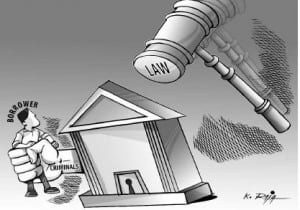“Communism failed, now capitalism has failed, so I believe now is the time for Islamic Finance!”
 Dubai’s police chief called for an easing of regulations on cheque fraud as the emirate’s jails fill with people guilty of bouncing cheques, according Finanacial Times.
Dubai’s police chief called for an easing of regulations on cheque fraud as the emirate’s jails fill with people guilty of bouncing cheques, according Finanacial Times.
Police are bearing the brunt of problems with defaulters, who are treated as criminals if a complaint is issued by a creditor. Prison officials say that about 20 per cent of the city’s 2,400 inmates have been convicted of cheque fraud. Moreover, according to police reports, in June last year 42 percent of the than 3,000 inmates in Dubai’s central jail are there because they did not repay bank loans.
Lawyers say the number of financial-related cases and convictions has jumped dramatically in recent months, as the economic slowdown and a property crash combine with disappearing credit facilities.
The practice of jailing debtors, more usual in 18th century England than in an ultramodern city, may not be the right approach in modern society. Combined measures, such as: tightening lending criteria, restructuring debt and alternative punishments will help reducing the population of loan and cheques defaulters in prisons.
In many European countries since the early 1980s, “free work” (community service) may be substituted for imprisonment as an alternative to imprisonment for failing to pay a debt. Such a substitution may be imposed by the judicial administration. The administration of this alternative is the duty of the social workers who are attached to the courts and who arrange for community service. For example, one day-fine is regarded as the equivalent of six to eight hours of community service.
UAE Cabinet yesterday ratified several federal draft laws, including a community service law, which allows community service as an alternative punishment, in lieu of imprisonment and financial penalty in certain criminal and civil cases, reported the official news agency WAM.
Fines and other penalties such as restitution and compensation for victims of crime must be enforceable to ensure the basis of the justice system is not undermined. But it does not make sense to jail a person over a minor breach of the law or default on small amount. Prisons are often seen as a university for criminals. And it is unlikely much good can come from exposing generally law-abiding citizens defaulters to such an environment.




































President pardons 329 inmates, settles their debts
85% of cheque defaults not linked to bank debts
http://www.business24-7.ae/articles/2009/3/pages/03192009_475653596abc4a0eab178db3c8344659.aspx